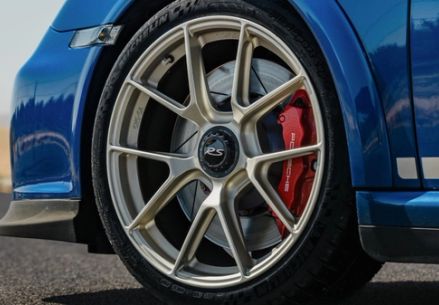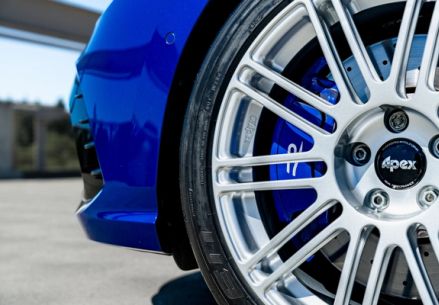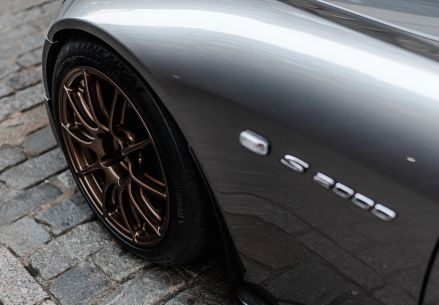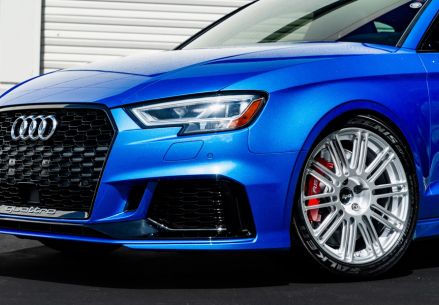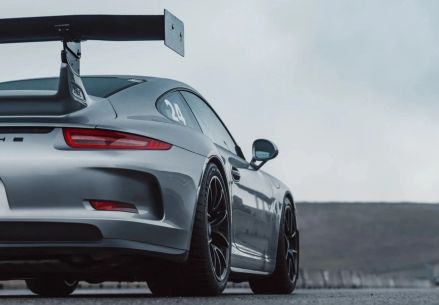
The Ultimate Chevrolet Bolt pattern & Centerbore Guide
Article | 09/23/2025 by Jon Jarvis
Updated on 09/24/2025
Chevrolet’s bolt pattern and center bore have remained fairly consistent over the years, with only minor tweaks for performance improvements as its cars developed. A bolt pattern is usually written with two numbers, such as 5x120mm or 5x4.5”. The first number shows how many lug holes the wheel has, while the second measures the distance between the centers of two opposing holes. For instance, a 5x120mm pattern means the wheel has five lug holes, with 120mm of spacing across from hole to hole. This second measurement can be given in either millimeters or inches, but most modern cars use millimeters. When shopping for Apex Chevrolet wheels (https://apexwheels.com/vehicles/chevrolet) you will notice we follow the metric standard, but Chevrolet has traditionally listed measurements in imperial measurements, a value that’s still often used in conversation today. Find out what fitment is best for your application in our Chevrolet Wheel & Tire Fitment Guide.
Before we get into the Chevrolet specific information, be sure to check out our article Bolt Pattern & Centerbore Guide if you need a refresher on what these terms mean.
Chevrolet Bolt Pattern, Centerbore, and Wheel Specs
| Year | Models | Chassis | Bolt Pattern | Center Bore | Lug Seat | Hardware | Fitment Guide |
|---|---|---|---|---|---|---|---|
| 1984-1996 | C4 | Corvette | 5x120.65mm | 70.3mm | 60 degree conical seat | M12x1.5mm | N/A |
| 1997-2004 | C5 | Corvette Base, Z/51, Z06, FRC | 5x120.65mm | 70.3mm | 60 degree conical seat | M12x1.5mm | C5 Corvette Fitment Guide |
| 1197-2004 | C5 | SPEC Corvette | 5x120.65mm | 70.3mm | 60 degree conical seat | M12x1.5mm | SPEC Corvette Fitment Guide |
| 2005-2013 | C6 | Corvette Base, Z/51 | 5x120.65mm | 70.3mm | 60 degree conical seat | M12x1.5mm | C6 Narrowbody Corvette Fitment Guide |
| 2005-2013 | C6 | Corvette Grandsport/ Z06 | 5x120.65mm | 70.3mm | 60 degree conical seat | M12x1.5mm | C6 Widebody Corvette Fitment Guide |
| 2014-2019 | C7 | Corvette Stingray, Z/51 | 5x120.65mm | 70.3mm | 60 degree conical seat | M12x1.5mm | C7 Narrowbody Fitment Guide |
| 2014-2019 | C7 | Corvette Grandsport/ Z06 | 5x120.65mm | 70.3mm | 60 degree conical seat | M12x1.5mm | C7 Widebody Fitment Guide |
| 2020+ | C8 | Corvette Stingray, Z/51 | 5x120mm | 67.1mm | 60 degree conical seat | M14x1.5mm | C8 Narrowbody Fitment Guide |
| 2023+ | C8 | Corvette E-ray/ Z06 | 5x120mm | 67.1mm | 60 degree conical seat | M14x1.5mm | C8 Widebody Fitment Guide |
| 2025+ | C8 | Corvette ZR1, ZTK | 5x120mm | 67.1mm | 60 degree conical seat | M14x1.5mm | N/A |
| 1982-1992 | 3rd Gen | Camaro | 5x120.65mm | 70.3mm70.3mm | 60 degree conical seat | M12x1.5mm | N/A |
| 1993-2002 | 4th Gen | Camaro | 5x120.65mm | 70.3mm | 60 degree conical seat | M12x1.5mm | N/A |
| 2010-2015 | 5th Gen | Camaro RS, SS, 1LE, Z/28, Zl1 | 5x120.65mm | 70.3mm | 60 degree conical seat | M14x1.5mm | 5th Gen Camaro Fitment Guide |
| 2016-2024 | 6th Gen | Camaro LS, LT, LS 1LE, LT 1LE, LT1, SS, SS1LE | 5x120.65mm | 70.3mm | 60 degree conical seat | M14x1.5mm | 6th Gen Camaro Fitment Guide |
| 2017-2024 | 6th Gen | Camaro ZL1 | 5x120.65mm | 70.3mm | 60 degree conical seat | M14x1.5mm | 6th Gen Camaro ZL1 Fitment Guide |
| 2018-2024 | 6th Gen | Camaro ZL1 1LE | 5x120.65mm | 70.3mm | 60 degree conical seat | M14x1.5mm | 6th Gen Camaro ZL1 1LE Fitment Guide |
| 2014-2017 | SS Sedan, Holden Commodore VF | 5x120.65mm | 70.3mm | 60 degree conical seat | M14x1.5mm | Chevy SS Fitment Guide |
Notable Transitions:
As Chevrolet’s cars evolved, so did their bolt patterns. Early models used a 5x120.65mm pattern, but modern Corvettes such as the C8, now feature the more common 5x120mm bolt pattern. Special high-performance models, like the ZR1, even use a 5x130mm rear bolt pattern to handle the added downforce and power. In general, the 5x120.65mm pattern has been shared across Chevrolet, Pontiac, and Buick, but most wheels are not cross-compatible because of slight differences in size and offset.
Over time, Chevrolet also increased the size of wheel hardware used, allowing for higher torque values to match the growing weight and performance of their vehicles. Camaros moved to an M14x1.5mm hardware size with the 5th generation in 2010, as well as the Corvette with the C8 in 2020.
Frequently Asked Questions:
Can I use aftermarket wheels on a Chevrolet?
Yes, you can use aftermarket wheels on your Chevrolet! At Apex, we offer plenty of OEM+ sizes as well as wider options for drivers looking for maximum performance.
Do I need wheel spacers or adapters for my Chevrolet?
You may need spacers depending on the setup you want. For Corvettes, none of our wheels require spacers or adapters as they’re a direct bolt-on fit. For Camaros, if you’re aiming for a square setup, you may need spacers along with a wheel stud kit.
Can I use my OEM Chevrolet center caps with Apex wheels?
In most cases, yes, you can reuse your OEM center caps. There are also many aftermarket Chevrolet caps available online that will fit.
Can I use aftermarket lug nuts on my Chevrolet?
Yes, you can use aftermarket lug nuts as long as they match your OEM hardware specs. Apex also offers high-quality Race lug nuts that are designed to fit.
Why shouldn’t I use bolt-on spacers?
You shouldn't use bolt-on spacers because you double the number of lug nuts you need to check, which means re-torquing up to 40 nuts between track sessions. They can also cause fitment issues if the spacer studs extend too far into the wheels' mounting pad. Beyond the inconvenience, cheaply made spacers often skimp on critical load-bearing hardware, making them unsafe. For Chevrolets that require spacers, we recommend our slip-on spacers paired with our ARP extended wheel stud kit.
Can I put 5x120mm wheels from a BMW onto my Chevrolet?
In some cases, such as the C8 with a 5x120mm bolt pattern, you can use BMW wheels with the appropriate hub-centric centering rings. In most other cases, due to the small difference in bolt pattern, Chevrolet’s more commonly used 5x120.65mm pattern is different from BMW's 5x120mm. Using BMW or other 5x120mm wheels won’t allow the wheel to center properly on the hub, which can cause vibrations at speed and lead to premature wear on wheel bearings and suspension parts.
Do aftermarket wheels affect how much I should torque my wheels?
No, aftermarket wheels do not affect your torque rating. You should always follow your manufacturer’s recommended torque specs unless you’re changing the wheel hardware size. Torque values are dictated more by the size of the wheel stud and lug nut than by whether the wheel is OEM or aftermarket.
Tags
 Jon Jarvis
Jon JarvisIf you like cheap gear you will hate this newsletter.
